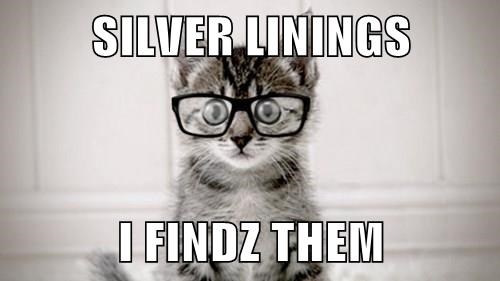In August, diabetes educators from all over the nation traveled to Orlando, Florida to attend the American Association of Diabetes Educators Annual Meeting 2014. I did too. These are my stories.
*ching, ching* (Law and Order style)
A fellow medical librarian and I arrived at AADE on Wednesday afternoon and went directly toward the Exhibit Hall and registration desk. We were sort of attending last minute, so we knew we would just have to feel out the schedule and learn as much as we could with the short time that we had at AADE. Our goal was to talk to as many folks as possible in an effort to learn what we need to continue work on a diabetes project that we are working on. (More to come on that…say, around November 14th or so. Seems like as good of a date as any. *wink, wink*)
First and foremost, the Exhibit Hall at AADE is enormous compared to the medical librarian conferences that we are accustomed to. Even though some have reported about how AADE is shrinking, it still feels like a big deal to me every time that I go. All two times that I’ve gone. Whatever, it still feels big, and important, and like people making a difference is happening or on the cusp of happening all around me while I’m there.
I had seen it last year at the Philadelphia AADE, but this was my colleague’s first time, and it was quite a shock to her. We started where everybody starts their first trek through the Exhibit Hall…on the side that doesn’t have salespeople staring at us and licking their chops like hungry wolves.
Some folks walk into something like AADE and own the joint. They know exactly what sessions they are going to, what they want to get out of it, who they want to talk to, and are prepared for all of the free stuff that they can carry back home to their practice and patients. If a burro is used, so be it. You get no judgement from me. For this AADE visit, I just wanted to talk to as many people as possible, and learn as much as I could. And I did, often in unexpected ways.
I learned a lot about how Certified Diabetes Educators (CDEs) think about people with diabetes, and that isn’t a bad thing. I learned that a lot of them even have diabetes themselves (both Type 1 and Type 2), which is encouraging. I think it is so important for our healthcare team to understand us, what we need, and what we don’t need as people with diabetes. I wish some folks outside of our healthcare team were more interested in understanding us the way that so many of the CDEs that I met yearn to.
I learned that some CDEs think that us diabetes advocates and diabetes bloggers should be regulated, have an advisory board, and be held to medical standards. There is an assumption, and heck, maybe it’s even true sometimes, that we all give medical advice on our blogs. Fortunately, I know that isn’t true of all of us who share our lives and stories with diabetes online. I stand alongside so many in the Diabetes Online Community (DOC) who do not give medical advice, but can still be a valuable asset to living with diabetes. We understand the burden, and can help you carry it when you feel like the weight is just too much. Sometimes it is enough just to know that someone else “gets it,” and that is where the DOC (in my opinion) is the strongest.
I can’t tell you how many units of insulin you should dose for that hamburger for your diabetes. That is between you and your healthcare team. I can tell you this though: If you don’t have a CDE who you can call at any time, day or night, to ask questions about your diabetes, you should find one or find a new one. The CDEs and other health professionals that I talked to at AADE want you to call them. They want to help with your diabetes. They do not want to have to visit you in the hospital when all it would have taken was a five minute phone call at eleven o’clock at night to get their expertise. And if you do have to go to the hospital, they want to be there for you and help you through. I was touched by how caring the CDEs that I met at AADE were, and to be honest, they far exceeded my assumptions and expectations.
On the second day, as we were wandering around the Exhibit Hall, I found that I couldn’t make a decision. About anything. We were trying to figure out what to have for lunch in the cafeteria section at the back of the hall, and I kept getting in line and getting out of line, not able to figure out what to do once I got to the register to order. I was getting so angry and frustrated, but the only real sign my colleague could decipher was that I was ticked off about something. And I was. I was extremely ticked that I was low, and I had to take time out for diabetes in the middle of a diabetes conference (of all places), and that it was ruining my time there to learn and network.
I finally just sat down in the middle of the Exhibit Hall (like you do when you’re low) and started sucking down Level gels like it was my job. Standing and walking and wandering was just too much work for my low-brainy self. I am so thankful for those gels, as well as the CDE who was sitting across from my quietly noticing my lowness and keeping her eye on things. It’s moments like this one at AADE when my hands aren’t cooperating, I can’t think, and I’m on the verge of whether I can chew and focus enough to swallow that the gels save me. I also appreciate my colleague sticking with me, figuring out what was going on after I was having trouble talking and was breaking out the Level gels, and not rushing me or making me feel like I was taking away from her AADE experience while having to deal with my low blood sugar nonsense.
I guess if you’re going to go low, there aren’t many better places than in the middle of over 2,000 diabetes educators.





















